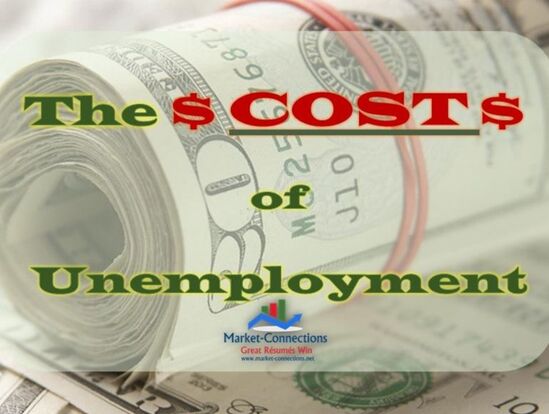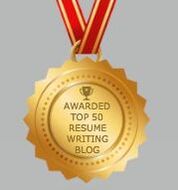The Cost of Unemployment
Have you ever stopped to consider the cost of being unemployed? The longer you are out of work, the more costly it is. Here are some things you may — or may not — have considered as the “cost of unemployment.”
Lost Wages
Loss of income is the most obvious cost of unemployment. Unemployment benefits – if you’re eligible for them — only cover a portion of your lost income. According to research by Newsweek, basic unemployment benefits average $300-$400 a week, typically covering 45 percent of a worker’s income. Severance pay, if offered, can help, but a long period of unemployment can outlast that as well.
Cost of Insurance
According to the 2019 Census, 55 percent of Americans have employer-paid health insurance. Research from the Kaiser Family Foundation found the average annual single premium per enrolled employee for employer-based health insurance was $6,972 per year in 2019, with the employee contributing $1,489 of that, and the employer paying $5,483.
While the Consolidated Omnibus Budget Reconciliation Act (COBRA) health insurance program allows eligible employees and their dependents to continue their health insurance coverage for 18 to 36 months after a job loss, the entire cost of the premiums is the responsibility of the individual. Based on the average, that means you would be responsible for paying almost $600 a month in health insurance premiums to keep your existing coverage. If COBRA coverage is not available, individuals can obtain insurance through the government’s Healthcare Marketplace, but that coverage can be expensive. A short-term health insurance policy may be more affordable, but may have a higher deductible and limited coverage. Going without healthcare insurance is risky financially. Medical bills are reported to be the number one cause of U.S. bankruptcies, and being uninsured can lead to significant out-of-pocket expenses. Lost Retirement Contributions
If you were contributing to your company’s retirement plan — especially if your contributions were matched by your employer — consider the financial impact of missing out on adding to your retirement savings. Every $500 missed could be worth up to $1,300 (assuming 5 percent growth over a 20-year period). Missing out on six months’ worth of retirement contributions could equal almost $8,000 in lost retirement income.
Increased Stress and Anxiety
According to CNBC, 63 percent of households report living paycheck to paycheck, meaning the loss of even one month’s salary could cause severe financial insecurity. Eight in 10 people say they currently can’t cover a $500 emergency. Research also shows that unemployment is linked to anxiety and depression, among other negative outcomes.
Negative Impact on Future Salary
When you’re unemployed, you may take a lower-paying job while negotiating your salary, just to get back into the job market. However, don't forget to think about the day when you may need to have a conversation about getting the raise you deserve. Since future raises are based on your new (lower) starting salary, you may find yourself missing out on tens of thousands of dollars of future income.
For example, if your original salary was $50,000, and you received annual raises of 3 percent, after 5 years, your salary will be $56,275. If you took a job that paid $45,000 and you received annual raises of 3 percent, after 5 years, your salary will be $50,647 — barely what you were making when you left your previous position. You would have also missed out on $26,544 in pay during those five years ($265,453 from the starting salary at $50,000 plus 3 percent raises minus $238,909 – five years of salary starting at $45,000 with a 3 percent annual increase). You may also make poor financial decisions out of desperation. For example, you might cash out your 401(k) fund to free up some cash to cover your living expenses. However, with limited exceptions, if you withdraw money from your 401(k) retirement account before the age of 59-1/2, you will pay a 10% early withdrawal penalty, plus income tax, on the distribution. For someone in the 24 percent tax bracket, an early withdrawal of $5,000 will cost $1,700 in taxes and penalties. In addition, you’ll lose out on the future growth of that $5,000. Invested for 20 years at 5 percent, that $5,000 would have grown to more than $13,000. The best thing you can do if you find yourself unemployed is to get back to work quickly:
How To Prepare For Unemployment
First — and most important — keep your résumé up-to-date and ready to go. Not only is it easier to pay for résumé services when you’re employed, but you won’t lose valuable time getting started with your job search. It can take anywhere from a few days to a few weeks to create an interview-winning résumé and portfolio of career documents. The sooner you are able to start your job search, the closer you’ll be to going back to work. Also, the longer you are unemployed, the harder it is to find a new job.
Second, have an emergency fund. One of the biggest struggles with unemployment is losing your income. Unemployment benefits — if you’re eligible to receive them — can take weeks to get approved. In the meantime, having an emergency fund — even a small fund of 2-4 weeks of expenses — is better than nothing. Most experts recommend having 3-5 months of savings. Third, the best offense is a good defense. If you think you’re in danger of losing your job, batten down the hatches. Make a list of your current expenses (review your checkbook register, credit card statements, or online banking profile) and see what you can cut out. You may have to prepare for a financial apocalypse. Determine which of your current monthly expenses must be maintained (mortgage and car payments, utilities, groceries) and which ones you can do without for now. Eliminate any unnecessary expenses. Finally, it can be easier to find a job when you have a job, so don’t wait until you lose your job to start looking. And take the advice of author Harvey Mackay and “Dig Your Well Before You’re Thirsty” and cultivate your network while you’re still working. Learn how to use LinkedIn. Get a FREE LINKINEDIN SCORECARD. Review your professional and personal connections and try to revive your network . After all, the cost of unemployment is high. Higher than you may have thought.
|
Categories
All
powered by Surfing Waves
AuthorMandy Fard is a Certified Professional Resume Writer (CPRW, CMRW) and Recruiter with decades of experience in assisting job seekers, working directly with employers in multiple industries, and writing proven-effective resumes. Archives
July 2024
|
-
Greater Los Angeles
and Kern County
-
[email protected]
.






 RSS Feed
RSS Feed



